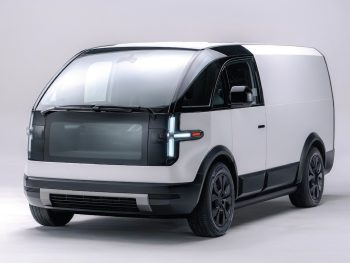Electric vehicle startup Canoo has signed an agreement with the AA to provide roadside assistance and charging infrastructure development to its commercial and government customers in the UK.

The agreement covers Canoo’s LDV 130 and LDV 190 electric vans as well as other commercial vehicles and includes specialised breakdown cover that ensures that drivers have access to 24/7 support. The AA’s trained technicians are equipped to handle battery-related issues and other EV-specific challenges, providing peace of mind for commercial drivers.
The deal also includes charging infrastructure development. The AA is actively involved supporting the expansion of the charging network across the UK. By partnering with key stakeholders, The AA is helping to create a more accessible and reliable charging infrastructure, enabling businesses to operate their electric fleets with confidence.
Tony Aquila, investor, executive chairman and CEO of Canoo, said: “The AA provides our commercial and government customers in the UK with access to world-class expertise in electric commercial vehicle service, maintenance and repair including breakdown services, and charging infrastructure support.
“Minimising downtime for commercial fleets is essential for maximising productivity and profitability. Every moment a vehicle is off the road translates to lost revenue and potential delays in service delivery, which can ultimately affect customer satisfaction and reputation. We are partnering with the AA to ensure shorter downtimes, enhance productivity, improve service quality, ultimately driving increased business productivity.”
James Starling, business services director at the AA, remarked: “We look forward to supporting Canoo and their partners, playing a pivotal role in ensuring their fleet customers remain operational. Our goal is to offer timely services that keep these vehicles on the road where they belong. Our approach aligns seamlessly with Canoo’s vision for rolling out electric vehicles. We are committed to introducing groundbreaking vehicles as part of our ‘test and scale’ strategy for fleet decarbonisation.”

